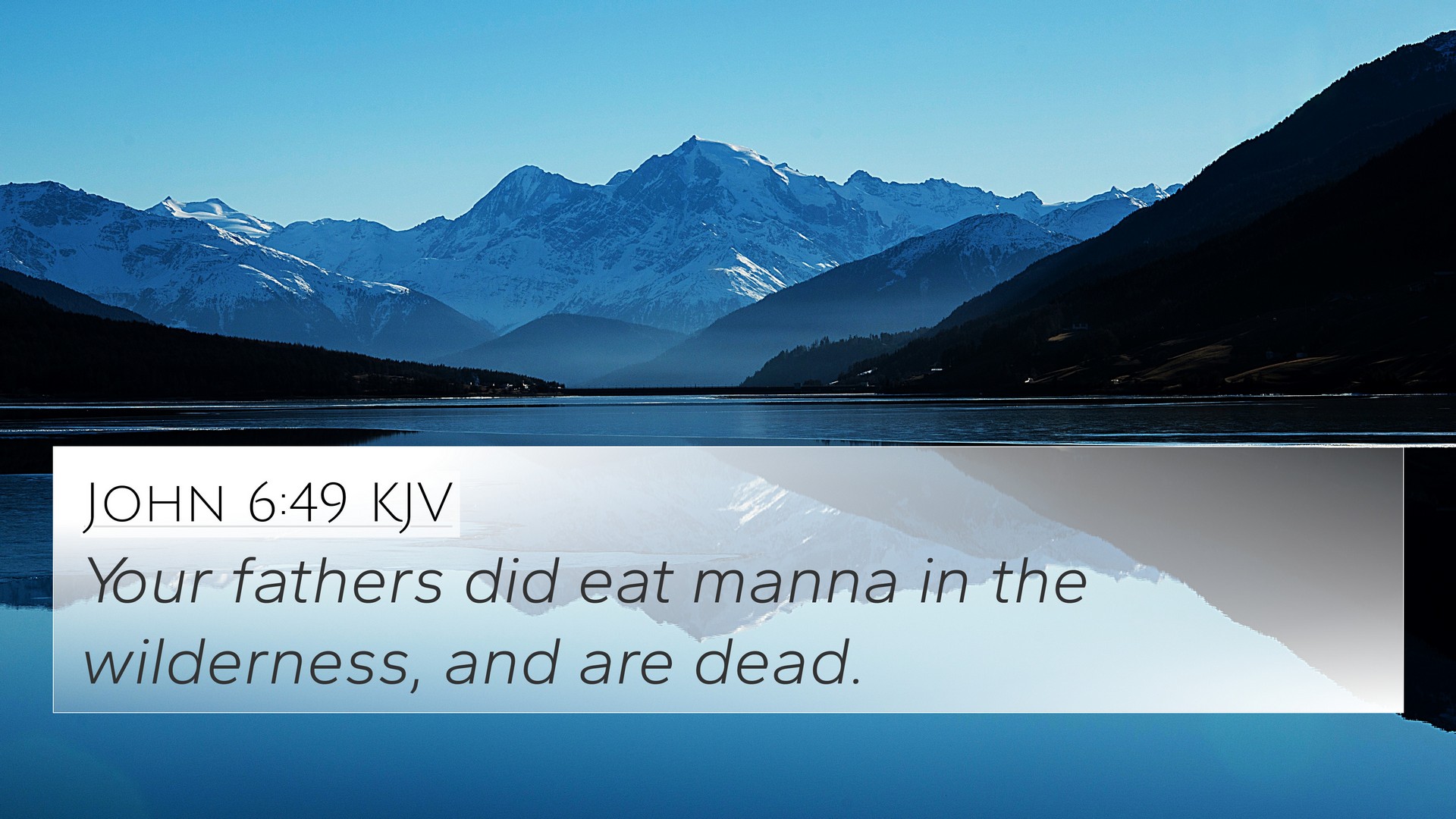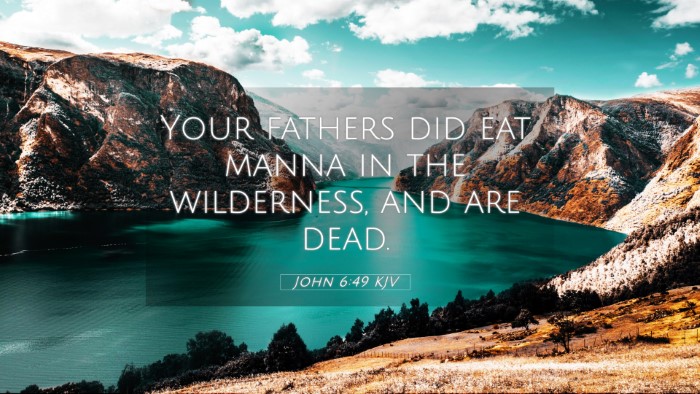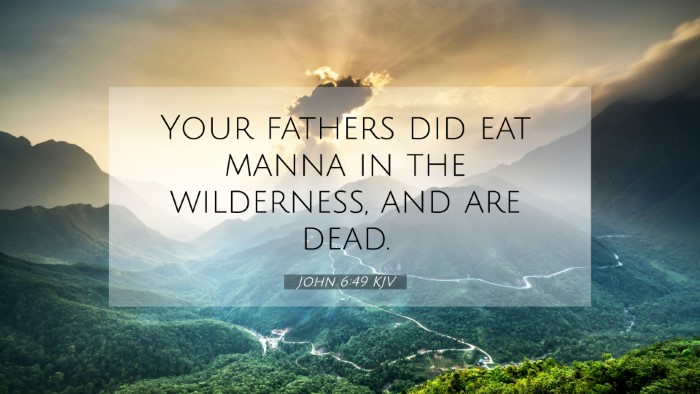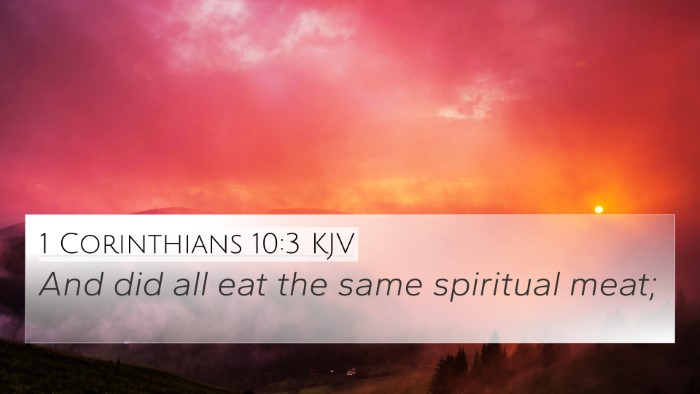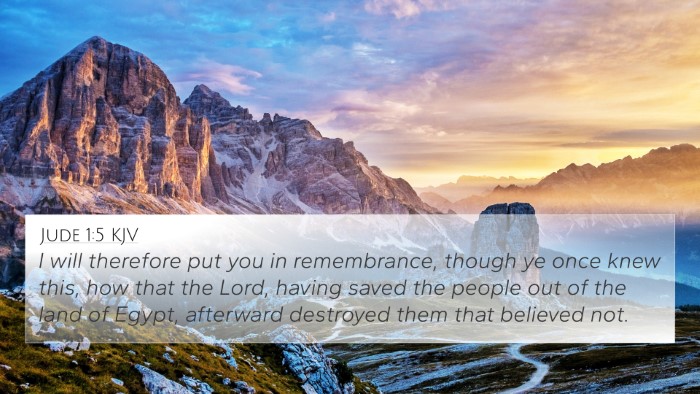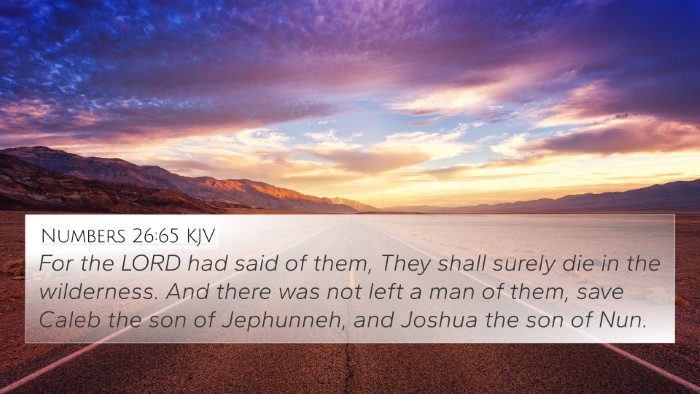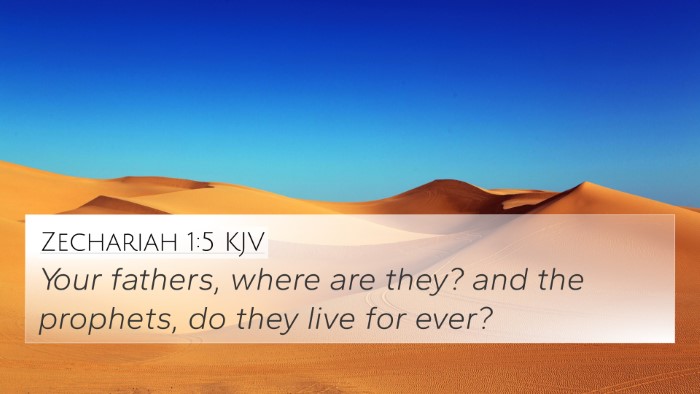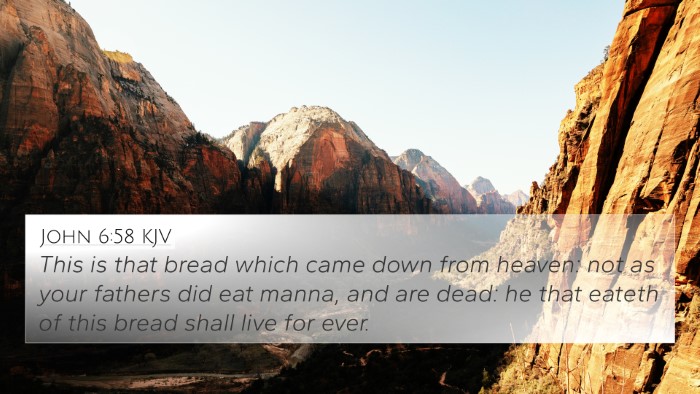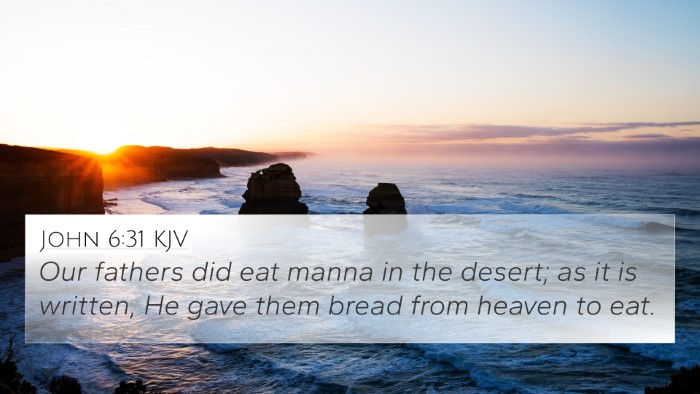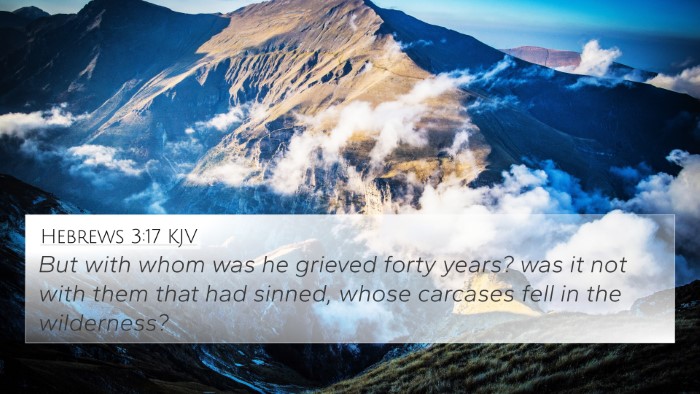Understanding John 6:49
John 6:49 is a significant verse in the New Testament where Jesus contrasts Himself as the bread of life with the manna that the Israelites ate in the wilderness. This verse states:
"Your fathers did eat manna in the wilderness, and are dead."
This statement by Jesus is packed with theological implications. To interpret this verse effectively, we will explore insights from various public domain commentaries, including those from Matthew Henry, Albert Barnes, and Adam Clarke.
Context and Meaning
In this chapter, Jesus is engaged in a discussion about spiritual sustenance and salvation. The manna, which God provided to the Israelites during their exodus, symbolizes temporary sustenance that ultimately could not save them from death. Jesus signifies that while the physical bread sustained their bodies temporarily, He offers eternal life, signifying a deeper, spiritual nourishment that transcends physical existence.
Commentary Insights
-
Matthew Henry's Commentary:
Henry emphasizes the distinction between the sustaining nature of Christ as the Bread of Life and the provision of manna. He illustrates that just as the fathers who ate manna eventually died, so too does earthly sustenance fail to provide eternal life. Henry draws the lesson that Jesus' spiritual nourishment leads to everlasting life, contrasting the temporal benefits of the Old Testament food.
-
Albert Barnes' Notes:
Barnes expounds on the implications of the manna as a divine provision that was part of a covenant community, yet ultimately insufficient for salvation. He points to the need for a more profound solution to humanity's predicament, which Jesus embodies. By referring to the fathers who are dead, Barnes implies the futility of relying on traditions or blessings of the past without recognizing the current offer of life found in Jesus.
-
Adam Clarke's Commentary:
Clarke elaborates on the historical context of the Israelites receiving the manna and how it served only a temporary role in their lives. He notes that they received this daily bread while wandering in the wilderness, but that it did not ensure their entry into the Promised Land. Clarke connects this to the necessity of faith in Christ, as He provides not just for physical needs but the soul's eternal needs.
Cross-References
This verse finds resonance with several other scripture passages that illustrate similar themes of sustenance, salvation, and eternal life. Here are some pertinent cross-references:
- Exodus 16:15: The story of the Israelites receiving manna in the wilderness.
- John 6:35: Jesus declares Himself the Bread of Life, affirming that whoever comes to Him shall never hunger.
- Romans 6:23: The contrast between death resulting from sin and eternal life through Jesus Christ.
- Hebrews 9:27: The certainty of physical death and the necessity of spiritual preparation.
- Deuteronomy 8:3: The teaching that man does not live by bread alone, but by every word that comes from the mouth of God.
- 1 Corinthians 10:3-4: Paul references the spiritual food and drink that the Israelites received, foreshadowing Christ.
- Matthew 4:4: Jesus affirms that spiritual food sustains life much like physical bread sustains the body.
Thematic Connections
The thematic connections woven through these verses build a comprehensive understanding of how Jesus fulfills Old Testament prophecies and teachings. They serve as crucial links for studying how New Testament texts relate to those from the Old Testament.
Tools for Bible Cross-Referencing
For those interested in further exploring biblical connections, several tools are available:
- Bible Concordance: A useful resource to find words and their occurrences throughout the Bible.
- Bible Cross-Reference Guide: Guides that outline various verses that relate to specific themes.
- Cross-reference Bible Study: Methods to engage in deeper study through inter-Biblical connections.
- Bible Chain References: Systems that lead readers through related verses for a comprehensive study experience.
Conclusion
In conclusion, John 6:49 serves as a poignant reminder of the need for spiritual sustenance that can only be found in Christ. The commentaries and cross-references enhance our understanding of not just this verse, but also how it interconnects with the wider narrative of Scripture. By using tools for cross-referencing, one can deepen their insight into the rich tapestry of biblical themes and teachings that relate to salvation and eternal life.
